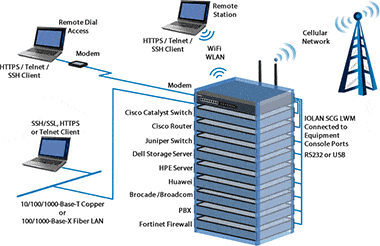
Developments in Financial Technology Call for Reliable IT Infrastructure
By Max BurkhalterJanuary 18, 2022
Finance is one industry governed by two opposite forces when it comes to technological development. On one hand, this is an industry that touches a huge variety of consumers' lives, and there is a constant pressure to keep audiences happy with the latest, most convenient tech tools. On the other hand, the tight regulations governing the space and sensitivity of data involved mean organizations can't upgrade recklessly.
The need for technology solutions that are both innovative and secure has led to a complex status quo in finance. Organizations don't want to be left behind by their more ambitious, faster-moving competitors, but they cannot put consumers' data at risk with inadequate technology deployments. The banks that thrive in the years ahead will likely be those that thread the needle between functionality and governance.
Pandemic Pressures Lead to IT Evolution
Operating any kind of business during a global pandemic will bring challenges and resulting evolution. In the case of finance, the major change between 2020 and the present has been a new readiness to embrace digital capabilities.
According to an InformationWeek roundup of recent financial technology trends, banks have been motivated to change the way they offer services to their customers. By becoming more tech-driven and user-friendly, these institutions hope to keep their audiences loyal during times when traditional interactions between people and companies have been completely disrupted.
What form have these changes taken so far? InformationWeek noted that technology ideas from robotic process automation and artificial intelligence to more general digital banking functionality have taken off during the pandemic. Advancements such as natural language processing have added capabilities such as voice-driven banking to existing offerings.
InformationWeek further stated that while these added features could be concerning if they weren't built on a solid IT foundation, financial institutions are changing on a fundamental level. Distributed operations powered by a backbone of technology are replacing the rigid, centralized processes that have dominated in the past. In the years to come, some institutions will be better than others at keeping up this developmental momentum.
The Cloud Comes to Banking
What does it look like when a financial institution embraces a distributed model? In technology terms, it may involve more cloud computing. According to BizTech, this transformation has finally come to banks following its widespread usage in other industries.
Financial institutions that want to use many of the other prominent technology solutions on offer today, including artificial intelligence, are leveraging cloud resources. They are also interested in more general cloud benefits, such as scalable resources and cost efficiencies. BizTech noted that leading banks and fintech companies, including CapitalOne and PayPal, have migrated important workloads into the cloud.
While banks embracing the cloud may not be as radical as it first appears — after all, they are largely turning to private clouds rather than software-as-a-service apps — the implication is clear. Even this traditional industry, tied to legacy systems and governed by tight regulations, has felt the need for flexible, affordable cloud solutions.
Powerful, Secure Tech Solutions for Finance
Building IT infrastructure reliable enough for financial use is not a task to be taken lightly. Perle solutions such as console servers and fiber media converters can provide high-speed web service for banking data centers as organizations pursue increasingly powerful tech tools. Read financial industry success stories to learn more about these systems.



